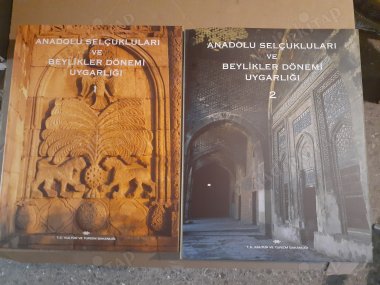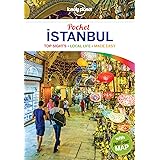by Doğan Hızlan
The giant two-volume work that I will introduce today; It is called the Anatolian Seljuks and Principalities Period Civilization.
I think it is not possible to know the Anatolian culture and the cultural map of these lands covering various areas without knowing the Anatolian Seljuks.
There are three names in the editors section of the book published by the Ministry of Culture and Tourism: Ahmet Yaşar Ocak, Ali Space Peker, Kenan Bilici.
Ahmet Yaşar Ocak, in his article titled An Overview of Civilization History Researches of the Anatolian Seljuks and Principalities Period , states the importance of the period as follows: “The middle of the 11th century witnessed a great change for the Islamic world, which emerged as one of the brightest civilizations in history in the Middle East from the end of the 7th century on. It was the establishment of a brand new Muslim state by the nomadic Oghuzes on the lands of Iran, the homeland of ancient Persian civilization, by coming to settle in the very middle of the Islamic world by the Turks who had accepted Islam in Turkey.
I think everyone will benefit from these two volumes according to their field or will be informed in areas they do not know.
* In the first volume, Ahmet Kartal ‘s Poetry and Poets in the Anatolian Seljuks and Principalities PeriodMustafa Isen ‘s Prose section caught my attention. I make this choice because I am in the habit of watching the cultural face of a civilization from literature.
The most impressive thought in Ahmet Kartal ‘s article is who would remember the sultans if they were not poets: “In general, sultans in the Islamic world believed in the role of poems sung by famous poets in keeping their names in mind.(…) “If the poem is successful, I will donate treasures and treasures. . Because with this verse book, my name will remain immortal in this mortal world. To remain in oblivion in this ephemeral world and in the ephemeral realm, and to remember the name eternally, is a great honor and an achievement that is hard to reach.”
The following statements of Behramşáh also support this: “If Ferdowsi had not written this book (Şeh-náme), who would remember the sultans, crown holders and famous wrestlers of that period? Who would mention their names?”
I can say that the interest shown by the administrators, who are also poets, to poetry is an enviable situation today. After examining the situation of prose in this period
, Isen concludes his article with the following determination: “Because the majority of the texts of this period consisted of the transfer of the basic topics of a newly accepted civilization, which were written in Arabic and Persian, into Turkish, the texts that were produced were generally written in those languages. It reflects sentence structure features.In this sense, the use of inverted sentence is common in these texts.(…)
Another feature of the texts of this period is that the majority of the words used are Turkish. If the concepts that come with the religion of Islam are excluded, all of the words used are the own vocabulary of Turkish. Uses depending on the grammatical rules of Arabic and Persian, which will be encountered in the texts of the next period, are not encountered in the texts of this period. The only rule that is rarely seen is Persian noun and adjective phrases.”
*
The chapter that stands out for me in the second volume is called Cities and Environment . Which names are there?
Aksaray, Akşehir, Amasya, Antalya, Beçin, Diyarbakır, Erzurum, Harput Castle , Kayseri, Konya, Malatya, Nigde, Sivas,
Tire.Canan Parla‘s Diyarbakir , see the post. It goes without saying the importance of this article to compare today with yesterday.
Books that are collaborative works have more scientific credibility.
Building Area: Design, Architects and Builders are also must-read pages for me. I think these two volumes will be an important book in our library.
https://www.hurriyet.com.tr/osmanli-dan-once-anadolu-da-selcuk-uygarligi-vardi-5372591




















